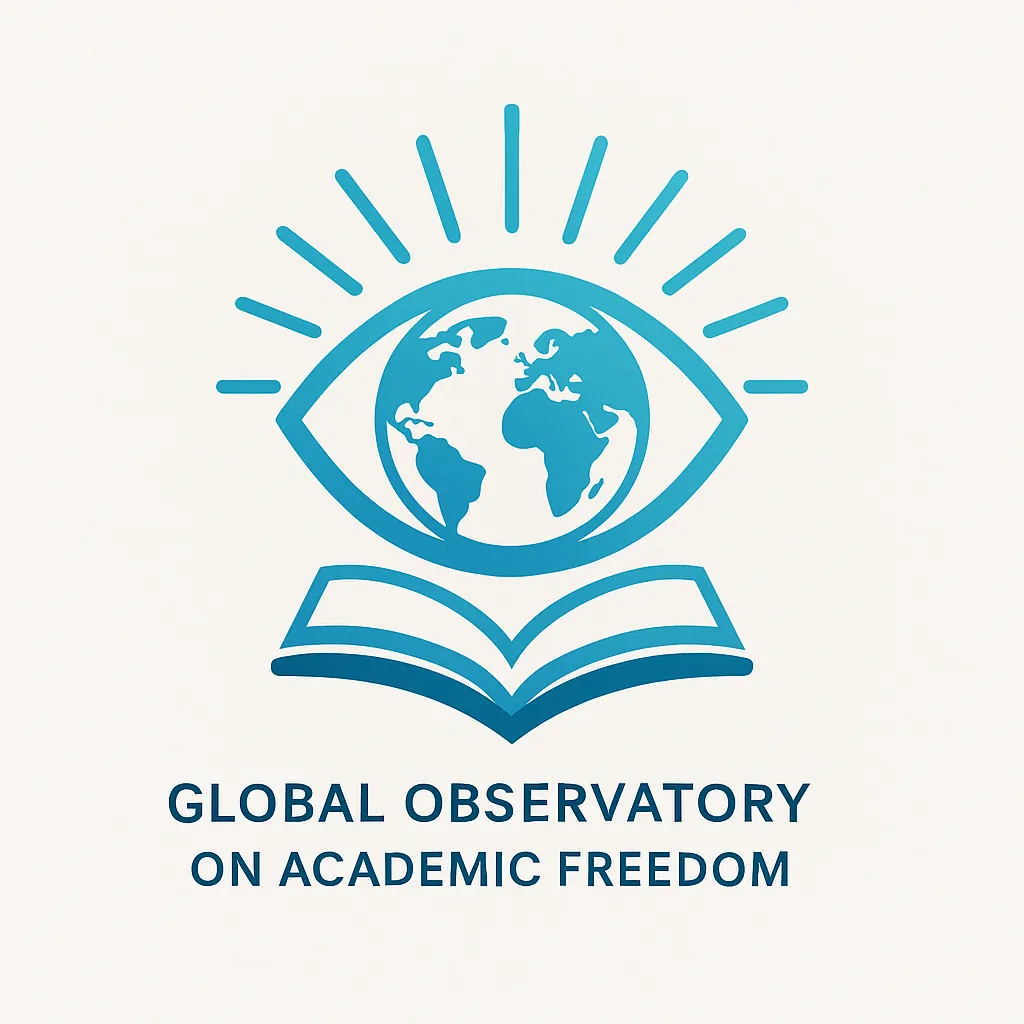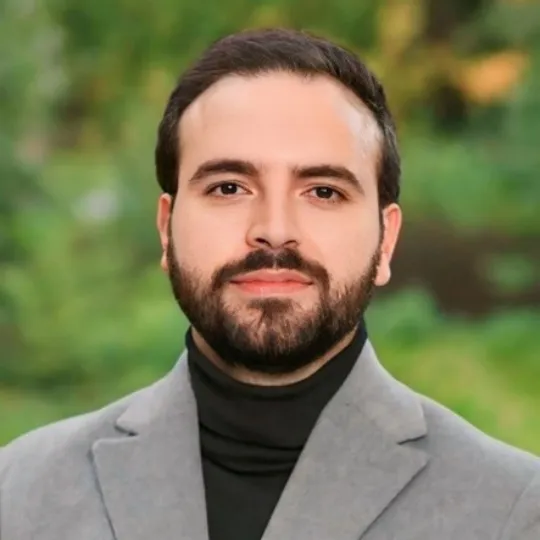The Global Observatory on Academic Freedom (GOAF) is an autonomous research project hosted by the School of Education, Communication and Society at King’s College London.
What we do
GOAF aims to conduct rigorous, innovative, and practically relevant research that responds to the needs of rethinking the concept of academic freedom, which is facing a crisis around the world.
New developments in academe, societies, national politics, and geopolitics pose new challenges to academic freedom, theoretical as much as empirical. GOAF stimulates debate on the understanding and practice of academic freedom, as well as its regulation and monitoring at the institutional, national, regional, and global levels.
As a globally networked platform, GOAF furthers efforts to conceptualise, promote, and defend academic freedom, while avoiding the limitations that come with a narrow national positioning.
GOAF’s research on academic freedom is conducted with a view to supporting universities in effectively pursuing their mission of producing, transmitting, and disseminating knowledge as a public good.
Universities do not control their national regulatory frameworks. They can, however, challenge public authorities to create and maintain the conditions for academic freedom. They can take action — within limits that differ from country to country — to document infringements of academic freedom, resist restrictive attempts by governments, regulators, or even internal constituencies, and find ways to promote, assert, and protect academic freedom.
Academic freedom is a cornerstone of higher education and democracy. The GOAF project connects interested stakeholders to reflect and act together on possible pathways to preserve academic freedom and democratic societies.
Our history
GOAF was originally established in 2020-2021 and hosted by Central European University in Vienna, in the wake of the forced relocation of this University from Budapest, Hungary. GOAF started as a project supported financially by the Open Society University Network (OSUN). When OSUN support stopped, GOAF moved to King’s College London.
Aims
GOAF aims to:
- create a platform connecting scholars with expertise and interest in academic freedom
- open space for debate and discussion of competing understandings and challenges to academic freedom in today’s world
- publish an annual thematic report on the state of the field, accompanied by case studies highlighting positive developments, threats, and infringements
- maintain an online repository of key resources on academic freedom
- reflect on and disseminate analyses of innovative approaches and help advance efforts to safeguard academic freedom.
Academic Freedom at King's
At King's, the principle of academic freedom is underpinned by a robust collection of institutional policies and statements. These foundational documents articulate the university's commitment to freedom of expression and academic inquiry, providing a clear guide for the academic community at King’s.
International Advisory Board
Chair: Professor Danièle Joly, University of Warwick/CADIS/EHESS
Danièle Joly is Professor Emeritus of Sociology at the University of Warwick and Associate Researcher at the MSH-Paris. She was formerly a European Commission Marie Curie Fellow at EHESS (CADIS) and a resident researcher at IEA-Paris, and previously served as Director of the Centre for Research in Ethnic Relations at Warwick. Her publications include L’Emeute (2007), Muslims in Prison (2005), Blacks and Britannity (2001), Haven or Hell: Asylum Policy and Refugees in Europe (1996), Britannia’s Crescent: Making a Place for Muslims in British Society (1995), and The PCF and the Algerian War (1991). With K. Wadia, she co-authored Muslim Women and Power (2017), which won the PSA WJM Mackenzie Prize for Best Book in Political Science (2017–2018). Her research focuses on Muslims in Europe, refugees and asylum policy, ethnic relations and integration, Muslim women in Europe, and Kurdistan–Iraq.
Dr Santiago Amaya, Associate Professor, Universidad de los Andes
Santiago Amaya is an Associate Professor in the Department of Philosophy, Faculty of Social Sciences, Universidad de los Andes. His work lies at the intersections of the philosophy of mind and the philosophy of action. He leads the research project Latam Free Will: Agency and Responsibility, funded by the John Templeton Foundation and jointly run by Universidad de los Andes and the University of California, San Diego, as well as Off the Rails: Moral Psychology Beyond Traditional Borders, funded by the James S. McDonnell Foundation.
Professor Kwadwo Appigyei-Atua, School of Law, University of Ghana
Kwadwo Appiagyei-Atua is Professor of International Law and Human Rights at the School of Law, University of Ghana, and adjunct Professor on the LL.M Programme in Human Rights and Democratisation at the Centre for Human Rights, University of Pretoria, South Africa. A member of the Ghana Bar Association, he earned his LLB from the University of Ghana, his professional law degree from the Ghana School of Law, an LLM from Dalhousie University, and a DCL from McGill University. He has held a Bank of Ireland Post-Doctoral Fellowship at the Irish Centre for Human Rights, National University of Ireland, and completed a Marie Curie International Incoming Fellowship at Lincoln University, UK, where he researched “Building Academic Freedom and Democracy in Africa” and served as a Monitor for the Magna Charta Observatory, University of Bologna. He is the Regional Director of the Africa Coalition for Academic Freedom, a civil society organisation affiliated with Scholars at Risk Network and focused on promoting and protecting academic freedom in Africa.
Sjur Bergan, Head of Education Department, Council of Europe (CoE)
Sjur Bergan is an independent education expert. He was Head of the Council of Europe’s Education Department, where his work focused on the purposes, values, and democratic mission of higher education, until his retirement in February 2022. He was a member of the Bologna Follow-Up Group and Board 2000 – 22, and has chaired working groups on structural education reforms. A leading expert and prolific author, he was a main author of the Lisbon Recognition Convention and of recommendations on public responsibility, academic freedom and institutional autonomy, and quality education. He served as series editor of the Council of Europe Higher Education Series 2004 – 23 and is the author of Qualifications: Introduction to a Concept and Not by Bread Alone. Sjur is also the author of European Higher Education, Social Responsibility, and the Local Democratic Mission (Temple University Press). He also co-edited the Raabe Handbook on
Leadership and Governance in Higher Education and coordinated sessions on the future of the European Higher Education Area at two Bologna Researchers’ Conferences.
Dr Que Anh Dang, The Institute for Global Education, Coventry University
Que Anh Dang is an Assistant Professor in Higher Education (HE) and International Development at Coventry University, UK. She has published widely on HE governance, academic freedom in international HE partnerships in Asia and Europe. Her current research focuses international university alliances and transnational education, with a particular focus on doctoral-level collaboration. As a committed advocate for academic freedom and fundamental academic values, Que Anh actively supports early career researchers and academic diaspora communities, championing open inquiry and intellectual autonomy. Raised in Asia and academically trained in Europe, she brings a unique intercultural perspective to higher education partnerships and exchanges. Since 1996, she has worked in international education in various capacities, spanning management, teaching, and research, in Vietnam, Denmark, Germany, and England. She holds an MA in Sociology of Education from Aarhus University, an MSc in Development Studies from Copenhagen Business School, and a PhD in Sociology of Higher Education from the University of Bristol, funded by a Marie Skłodowska-Curie Research Grant.
Dr Hilligje van’t Land, Secretary General, the International Association of Universities (IAU)
Hilligje van’t Land is Secretary General of the International Association of Universities (IAU), a global NGO with UNESCO Associate Status based at UNESCO headquarters in Paris. Created in 1950, IAU celebrates 75 years of international higher education cooperation just this year. She represents IAU in numerous working groups and expert committees, including at the UN, in particular UNESCO, serving on the High-Level Advisory Board to the UNESCO Futures of Education Initiative and Mission 4.7; the UNESCO ESD for 2030 Programme; the United Nations University Ubuntu Committee of Peers advising on the development of the Regional Centers of Expertise on SD; the Council of Europe Working Group on Higher Education and the international consortium on Democracy and Advisory Boards to European University Alliances and other initiatives. She holds a PhD in Comparative Francophone Literature, speaks six languages, and has published on higher education issues of local and global relevance.
Professor Robert C. Post, Sterling Professor of Law, Yale Law School
Robert Post is Sterling Professor of Law at Yale Law School, where he served as the School’s 16th Dean from 2009 to 2017. Before joining Yale, he taught at the University of California, Berkeley School of Law. A specialist in constitutional law with a focus on the First Amendment, he is also a legal historian has just published Robert C. Post, The Taft Court: Making Law for a Divided Nation, 1921-1930 (Cambridge University Press 2024), which is Volume X of the Oliver Wendell Holmes Devise History of the Supreme Court of the United States. His books include Citizens Divided: A Constitutional Theory of Campaign Finance Reform (2014); Democracy, Expertise, Academic Freedom: A First Amendment Jurisprudence for the Modern State (2012); For the Common Good: Principles of American Academic Freedom (with Matthew M. Finkin, 2009); and Prejudicial Appearances: The Logic of American Antidiscrimination Law (2001). Professor Post is a member of the American Law Institute and is currently the co-reporter for the Restatement (Third) of Torts: Defamation and Privacy. He is a Fellow of both the American Philosophical Society and the American Academy of Arts and Sciences.
Dr Monika Steinel, Senior Policy Analyst, EUA
Monika has been Deputy Secretary General of EUA since October 2021. In this role, she shares strategic oversight of different elements of EUA’s work and contributes to the Association’s organisational development, including membership management and services as well as strategic and operational planning. She also leads EUA’s activities on academic freedom and university values, having participated in and contributed to many related initiatives and expert groups. Monika has been with EUA since 2010, initially in the Governance, Autonomy and Funding unit where she implemented EUA’s flagship Autonomy Scorecard project.
Dr Michel Wievorka, Professor and Director of Research, EHESS
Michel Wieviorka is Professor at the École des Hautes Études en Sciences Sociales. He was President of the Board of the Fondation Maison des Sciences de l’Homme (FMSH) from 2009 to 2020, as well as Director of the Centre d’Analyse et d’Intervention Sociologiques (CADIS, EHESS–CNRS, 1993–2009), President of the International Association of Sociology (AIS/ISA) from 2006 to 2010, and a member of the European Research Council (ERC) Scientific Council from 2014 to 2019. He was Co-Director, with Georges Balandier, of the journal Cahiers Internationaux de Sociologie from 1991 to 2011, and now heads the journal SOCIO (with Laetitia Atlani-Duault), which he created in 2013, and Violence: An International Journal (with Scott Straus). His main books in English include The Arena of Racism (Sage), The Making of Terrorism (University of Chicago Press), The Lure of Anti-Semitism (Brill), Violence: A New Approach (Sage), and Evil (Polity Press).
Our partners
Working collaboratively with key organisations is fundamental to the mission of the GOAF. These strategic partnerships enable a broader reach, deeper insights, and more effective advocacy in protecting and promoting academic freedom worldwide. The Global Observatory on Academic Freedom is proud to collaborate with the following organisations:

Group leads
Contact us
If you have any queries, please contact us at goaf@kcl.ac.uk or Dr Ahmad Akkad (ahmad.akkad@kcl.ac.uk).


